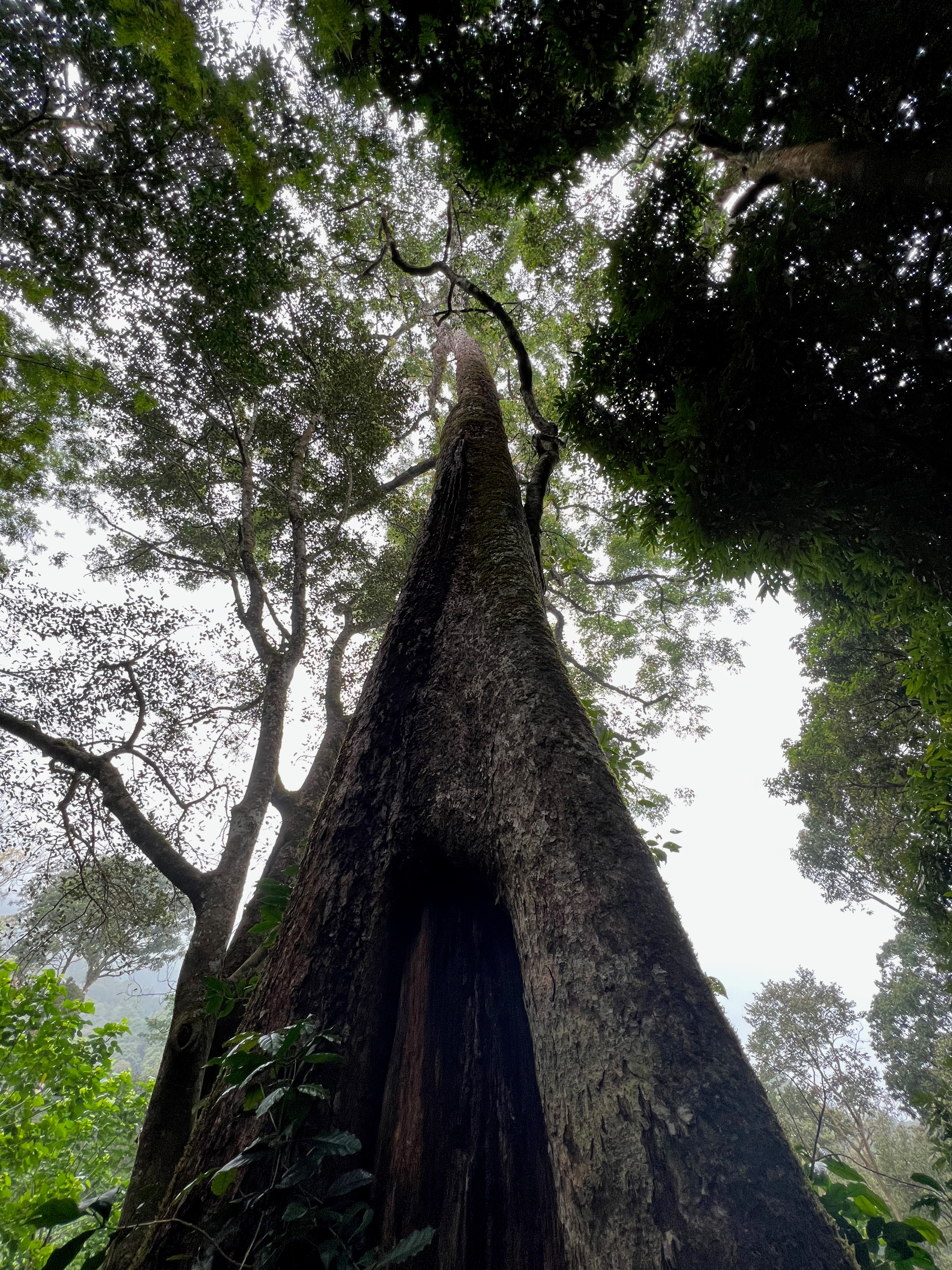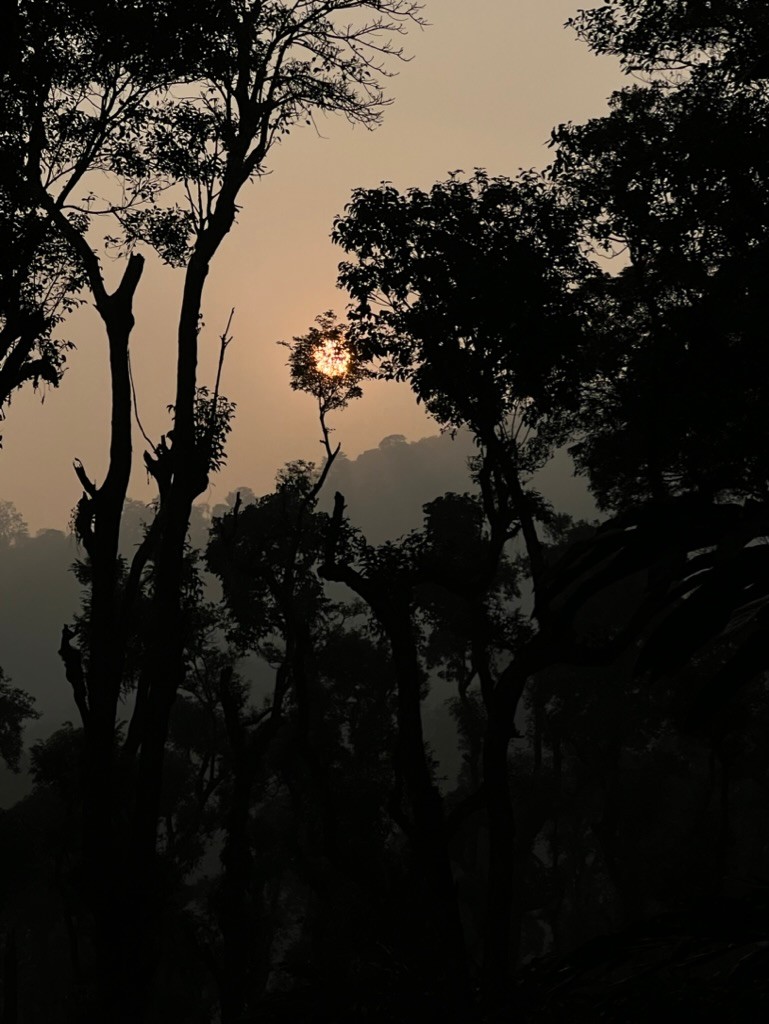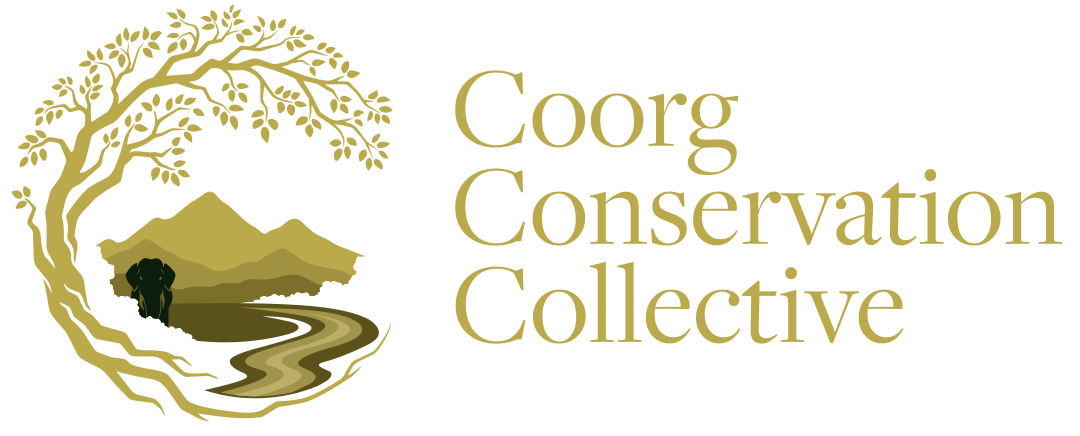
May 12, 2025
The Sacred Groves of Coorg

By Shobini Kaveriappa
In the highlands of southern India, where the monsoon gathers its clouds against the slopes of the Western Ghats, there are forests that breathe with memory. A network of living sanctuaries.
These are the Devara Kadus - sacred groves that the Kodava people have preserved for centuries as inviolable spaces where gods, ancestors, animals, and trees coexist in profound harmony. The air is cooler, the silence deeper, punctuated only by birdcalls and the rustle of unseen creatures. Towering trees, some centuries old, form a canopy that cradles entire ecosystems beneath them.
Every grove is a temple without walls, where worship is not of idols alone but of the living earth itself.
Ecological Sanctuaries in a Changing Landscape
Kodagu is home to over 1,200 sacred groves, covering more than 2,500 hectares of land. Scientists have recorded at least 144 tree species in these groves, with 14 found nowhere else on earth. They harbor medicinal plants, pollinators, amphibians, reptiles, and endangered birds - tiny fragments of forest that collectively form a biodiversity ark.
These groves are more than catalogs of biodiversity. The groves also act as climate stabilizers. Their dense vegetation sequesters carbon, replenishes aquifers, and ensures the steady flow of the Cauvery River, a sacred lifeline to millions downstream. In a district where commercial coffee and estates have consumed vast swathes of forest—Coorg lost over half of its forest cover between 1920 and 1990 - the sacred groves remain as pockets of resilience, holding the memory of what once was.
Unlike the Amazon, whose vastness gives it global recognition, the Western Ghats’ forests are smaller and more fragile. Each hectare lost here exacts a disproportionately large ecological cost. The groves, therefore, are not only cultural treasures but ecological keystones in a threatened landscape.
Sacred Bonds: Culture as Conservation
For the Kodava community, Devara Kadu are inseparable from identity. Each grove is dedicated to a deity, and strict taboos forbid hunting, tree felling, or disturbance. Rituals are held under ancient trees, reinforcing the understanding that human life is entwined with the life of the forest.
In these traditions lies a powerful conservation ethic: nature is not a resource to be extracted but kin to be revered. The groves embody an indigenous philosophy of reciprocity - if you care for the earth, the earth will care for you. Stories tell of spirits who guard the groves—protectors who ensure reverence is repaid with abundance. In these ways, culture became conservation.
Threats to the Sacred
Yet, even sanctity has limits in the face of modern pressures. Encroachment for agriculture and expanding coffee plantations continues to eat away at grove boundaries. Shifting values, urbanization, and the erosion of traditional belief systems weaken the community-led protections that once kept the groves inviolate.
What was once safeguarded by taboo now requires legal frameworks and active stewardship. Without this, the risk is that these cultural-ecological gems may fade into relics remembered only in stories.
A Call to Reverence and Action
The sacred groves of Coorg remind us that conservation need not always be born of legislation or science - it can emerge from reverence, ritual, and restraint. At a time when the world grapples with ecological collapse, the Devara Kadu offer a lesson that feels both ancient and urgent: that forests are not just carbon sinks, nor mere biodiversity banks, but living temples deserving of awe and protection.
To walk in a grove is to glimpse a glorious past and a flourishing future rooted in respect, where ecological balance and cultural continuity are not separate pursuits but the same sacred act.
Protecting them is not just about preserving trees or traditions - it is about safeguarding the wisdom of coexistence itself.
The groves endure, whispering to us still: if you forget us, you forget yourselves.




